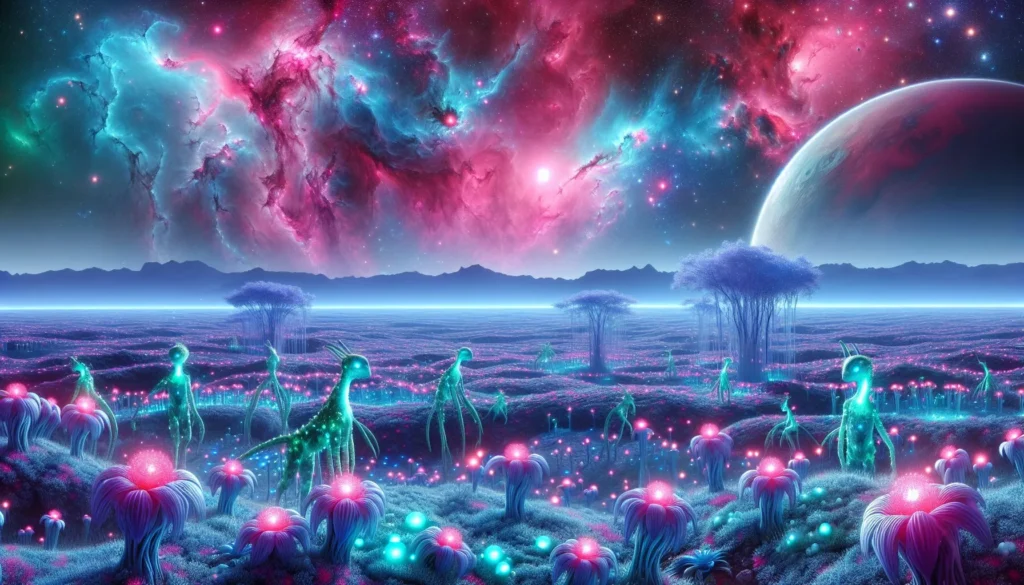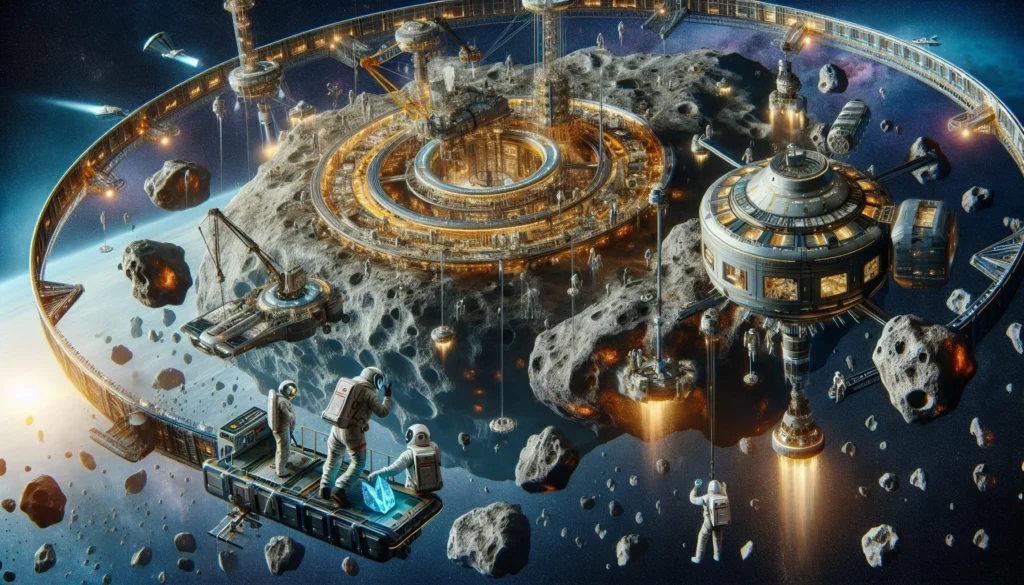Mars Colonization
As humanity embarks on the monumental task of Mars colonization, the challenges posed by the Red Planet’s harsh environment demand innovative solutions. Personalization through AI is poised to play a pivotal role in ensuring the well-being and efficiency of Martian settlers.
By tailoring habitat conditions, work schedules, and life support systems to individual needs, AI-driven personalization will not only enhance the comfort of colonists but also optimize resource use in a world where every drop of water and breath of air is precious. The idea of Mars colonization has long captivated the creativity of scientists and dreamers alike.
As our technological capabilities advance, the risk of establishing a human settlement on the Red Planet appears more and more possible. This article delves into the key questions surrounding Mars colonization, providing insights from specialists and exploring modern options to the challenges we face.

Q&A Format Article
Q1: Why is Mars a goal for colonization?
Mars has long been a beacon for human exploration and potential colonization due to its relative proximity to Earth and its somewhat Earth-like characteristics. Scientists and space enthusiasts are drawn to the Red Planet’s mysteries and the possibility of establishing a new frontier for humanity.
The allure of Mars as a colonization goal also stems from the desire to ensure the survival of our species by becoming multi-planetary, as well as the opportunities it presents for scientific discovery and technological advancement.
Mars presents a novel alternative for colonization attributable to its relative proximity to Earth and its floor circumstances, which are more hospitable than those of different planets. The presence of water ice, the potential for in-situ useful resource utilization, and a day size just like Earth’s make Mars a super candidate for exploration and settlement.
Q2: What are the main challenges of colonizing Mars?
Despite the advantages Mars presents, the challenges of colonization are substantial and multifaceted. One of the most significant hurdles is the creation of a sustainable life support system that can provide air, water, and food in the harsh Martian environment. Additionally, protecting settlers from intense radiation and extreme temperatures will require innovative habitat designs and materials.
The psychological impact of isolation and confinement on individuals and groups over extended periods also poses a serious concern that must be addressed in planning long-term human presence on the Red Planet. The main challenges embody:
1: Radiation Exposure: Radiation exposure is one of the most daunting challenges for human missions to Mars, as the planet’s thin atmosphere offers little protection from the high-energy particles that pervade space. Without the Earth’s magnetic field to shield them, astronauts would be subjected to levels of radiation that could significantly increase the risk of cancer and other health issues.
Developing advanced shielding materials and incorporating them into spacecraft and habitats is essential to ensure the safety and well-being of the crew during their journey and extended stay on the Martian surface. Mars lacks a magnetic discipline and thick atmosphere, exposing colonizers to dangerous cosmic rays. Solutions like underground habitats or radiation shielding are being explored.
2: Resource Scarcity: To combat the challenge of resource scarcity, innovative strategies are being developed to utilize the Red Planet’s raw materials. In-situ resource utilization (ISRU) will be crucial, as it allows for the production of essential supplies like water, oxygen, and fuel directly on Mars, reducing the need to transport vast amounts of resources from Earth.
Advanced robotics and AI personalization will play a key role in optimizing these processes, ensuring efficient use of the Martian environment to support sustainable human presence.
The restricted availability of important sources necessitates the growth of applied sciences for in-situ useful resource utilization (ISRU) to extract water from ice and generate oxygen and gas.
3: Psychological and Physical Effects: To ensure the well-being of astronauts, understanding the psychological and physical effects of extended stays on Mars is crucial. The isolation, reduced gravity, and exposure to higher levels of radiation present unique challenges that must be addressed through rigorous training and advanced habitat design.
Continuous monitoring and personalized support systems, powered by AI, will play a pivotal role in maintaining astronaut health, both mentally and physically, during these long-duration missions.
The isolation and diminished gravity on Mars can influence human well-being. Research into human psychology and physiology is ongoing to mitigate these results.
Q3: What technological improvements are being developed to help Mars colonization?
To address the challenges of Mars colonization, a variety of technological advancements are in development. Innovations in habitat construction are paramount, with a focus on using Martian materials for in-situ resource utilization to build durable structures that can withstand the planet’s harsh environment.
Additionally, life support systems are being refined to provide reliable sources of air, water, and food, employing closed-loop systems to ensure sustainability. Robotics and AI are also playing a critical role, assisting with tasks ranging from construction and maintenance to complex scientific research, thus reducing the risks to human colonists. Several groundbreaking applied sciences are in progress:
1: Spacecraft and Propulsion: Innovative spacecraft and propulsion technologies are at the forefront of enabling sustainable space colonization. Advanced propulsion systems, such as ion thrusters and nuclear propulsion, promise to shorten travel times between Earth and extraterrestrial colonies, making resupply missions more feasible and efficient.
Moreover, the development of autonomous spacecraft equipped with AI allows for precise navigation and systems management, ensuring that both crewed and uncrewed vehicles can operate safely in the harsh conditions of space.
Companies like SpaceX are creating superior spacecraft designed for interplanetary journeys, using rockets with reusable levels to cut back prices.
2: Habitat Construction: Autonomous Robotics: The future of space exploration and habitat construction hinges on the advancement of autonomous robotics. These sophisticated machines are being developed to perform a variety of tasks that are too dangerous or impractical for astronauts to undertake.
From the assembly of complex structures on other planets to the mining of essential resources, autonomous robots are poised to be the linchpins in establishing a sustainable human presence beyond Earth. Innovative construction strategies, resembling 3D printing utilizing Martian regolith, are being examined to assemble habitats on Mars.
3: Life Support Systems: To ensure the viability of long-term missions, life support systems are being meticulously designed to create a closed-loop environment capable of recycling air, water, and waste. These systems will harness advanced filtration and bioregenerative technologies to simulate Earth’s natural life cycles, providing astronauts with the necessary conditions for survival.
The development of these systems is not only critical for the health and safety of the crew but also serves as a testbed for sustainable technologies that could benefit our planet. Closed-loop life support techniques to recycle air and water are essential for long-term sustainability.
This fall: How will Mars colonization profit humanity?
The pursuit of Mars colonization extends beyond the sheer thrill of exploration; it represents a profound investment in the future of human civilization.
By confronting the challenges of establishing a permanent presence on another planet, we are compelled to innovate in fields such as agriculture, energy, and medicine.
These advancements not only prepare us for life on Mars but also have the potential to address some of the most pressing issues on Earth, such as food security, renewable energy, and efficient healthcare delivery.
As we look to the red planet, we are, finding solutions for our own, nurturing technologies that can make life more sustainable in both worlds. The colonization of Mars guarantees quite a few advantages:
1: Scientific Discovery: The exploration of Mars provides an unprecedented opportunity for scientific discovery, allowing us to delve into the mysteries of our solar system’s formation, the history of water on the planet, and the potential for past or present microbial life.
Each rover, lander, and satellite sent to the red planet returns with a wealth of data, contributing to our understanding of planetary science and astrobiology.
This relentless pursuit of knowledge not only satisfies human curiosity but also equips us with the insights necessary to address some of the most pressing challenges on Earth, such as climate change and resource depletion.
Mars presents a novel surrounding for scientific examination, which may result in breakthroughs in understanding planetary formation and the potential for all times past on Earth.
2: Technological Advancement: 3: Economic Expansion: The exploration of Mars opens up new avenues for economic growth, as it encourages the development of new technologies and industries. The potential extraction of valuable minerals and other resources from the Martian surface could lead to the establishment of a whole new market, stimulating economies both on Earth and potentially on Mars in the future.
Furthermore, the involvement of private companies in space exploration is creating new job opportunities and inspiring a new generation of entrepreneurs and engineers dedicated to the pursuit of interplanetary commerce. The challenges of Mars colonization drive innovation, leading to new applied sciences that may benefit life on Earth.
3: Long-term Survival: Ensuring the long-term survival of a Mars colony hinges on the development of self-sustaining ecosystems and life-support systems that can operate independently from Earth. Innovations in closed-loop agriculture, water recycling, and energy generation are crucial to creating a stable environment that can support human life for extended periods.
The lessons learned from these advancements have the potential to revolutionize sustainability practices on our home planet, addressing critical issues such as food security and resource conservation.Establishing a presence on Mars creates a security web for humanity, guaranteeing survival in the event of catastrophic occasions on Earth.

Conclusion
Indeed, the pursuit of Mars colonization is not merely a backup plan but a proactive step toward extending human knowledge and capabilities. By overcoming the formidable challenges of interplanetary travel and habitation, we simultaneously develop technologies and strategies that can be repurposed to improve life on Earth.
Furthermore, the collaborative nature of such a monumental endeavor fosters international cooperation and unites us in a shared vision for the future, transcending terrestrial conflicts and inspiring a new generation of thinkers and explorers.
The dream of Mars colonization is now not confined to the realm of science fiction. With every technological development, we inch nearer to creating this bold, imaginative, and prescient actuality.
While challenges remain, the potential rewards—scientific, technological, and existential—make the pursuit of Mars colonization a worthwhile endeavor. As we proceed to discover the potentialities, a future where people thrive on Mars appears more and more within reach.
Table: Key Challenges and Solutions in Mars Colonization
| Challenge | Potential Solutions |
|---|---|
| Radiation Exposure | Underground habitats, radiation shielding |
| Resource Scarcity | In-situ useful resource utilization (ISRU) expertise |
| Psychological Effects | Research and countermeasures for isolation stress |
| Habitat Construction | 3D printing with Martian supplies |
For extra data, discover these sources:
Exploring the vast potential of AI personalization in space exploration, particularly in missions to Mars, offers a new frontier in efficiency and adaptability. AI algorithms can be tailored to manage the unique challenges of the Martian environment, optimizing ISRU processes to convert local resources into usable materials with minimal human oversight.
Moreover, AI-driven systems can monitor the psychological well-being of astronauts, providing personalized support and interventions to mitigate the effects of isolation and confinement during long-duration missions.
This symbiosis of human ingenuity and machine learning paves the way for sustainable and resilient extraterrestrial living, essential for the success of future colonization efforts. The pursuit of Mars colonization continues to encourage and challenge us, driving innovation and providing hope for the future of humanity.


